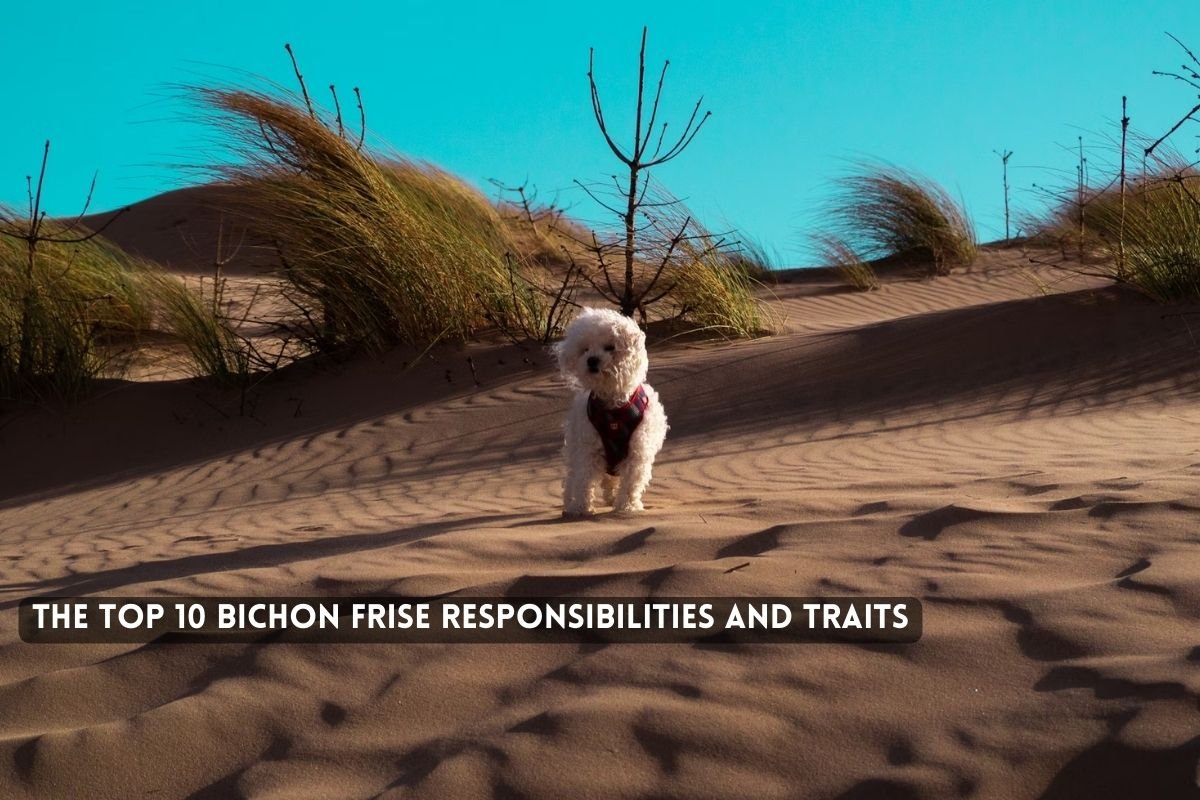The Bichon Frise, with its fluffy white coat and cheerful demeanor, is a beloved breed that brings joy to many households. However, owning a Bichon Frise comes with specific responsibilities and an understanding of their distinct traits. Here, we delve into the top 10 responsibilities and traits of the Bichon Frise to help potential and current owners provide the best care for their furry friends.
Grooming Needs
Bichon Frises have a dense, curly coat that requires regular grooming to prevent matting and tangling. Daily brushing and professional grooming every 4-6 weeks are essential to keep their coat healthy and looking its best.
Exercise Requirements
Though small, Bichon Frises are energetic and need regular exercise to stay fit and happy. Daily walks, playtime, and interactive games are crucial to meet their physical and mental needs.
Socialization
Bichon Frises thrive on social interaction and can become anxious if left alone for long periods. Regular socialization with people and other dogs helps them develop good behavior and prevents separation anxiety.
Training
Known for their intelligence and eagerness to please, Bichon Frises are relatively easy to train. Consistent, positive reinforcement methods work best, and early training can help establish good habits and obedience.
Affectionate Nature
Bichon Frises are incredibly affectionate and enjoy being close to their owners. They often seek out cuddles and attention, making them excellent companion animals.
Hypoallergenic Qualities
One of the standout traits of the Bichon Frise is its hypoallergenic coat. They shed minimally, making them a suitable choice for people with allergies.
Health Care
Bichon Frises are generally healthy, but they can be prone to certain conditions like dental issues, allergies, and patellar luxation. Regular vet check-ups and a balanced diet are essential to maintain their health.
Playfulness
These dogs are playful and enjoy a variety of toys and activities. Engaging them in playful interactions helps keep them mentally stimulated and happy.
Adaptability
Bichon Frises are adaptable and can live comfortably in various environments, including apartments. However, they need a stimulating environment with enough activities to prevent boredom.
Loyalty
Bichon Frises are loyal dogs that form strong bonds with their families. Their loyalty and love make them excellent pets for families, singles, and seniors alike.
Conclusion
Owning a Bichon Frise is a delightful experience, but it comes with specific responsibilities to ensure their well-being. From regular grooming and exercise to proper training and health care, these charming dogs require dedicated attention and love. Understanding their unique traits and needs will help any Bichon Frise owner provide a happy and fulfilling life for their furry companion.
FAQs
What is the average lifespan of a Bichon Frise?
Bichon Frises typically live between 12-15 years with proper care.
Are Bichon Frises easy to train?
Yes, they are intelligent and respond well to positive reinforcement, making them relatively easy to train.
Do Bichon Frises bark a lot?
They can be vocal, especially if they are bored or anxious. Proper training and mental stimulation can help manage excessive barking.
How often should I groom my Bichon Frise?
Daily brushing and professional grooming every 4-6 weeks are recommended to maintain their coat’s health and appearance.
Are Bichon Frises good with children?
Yes, Bichon Frises are generally good with children and enjoy playful interactions, making them great family pets.
